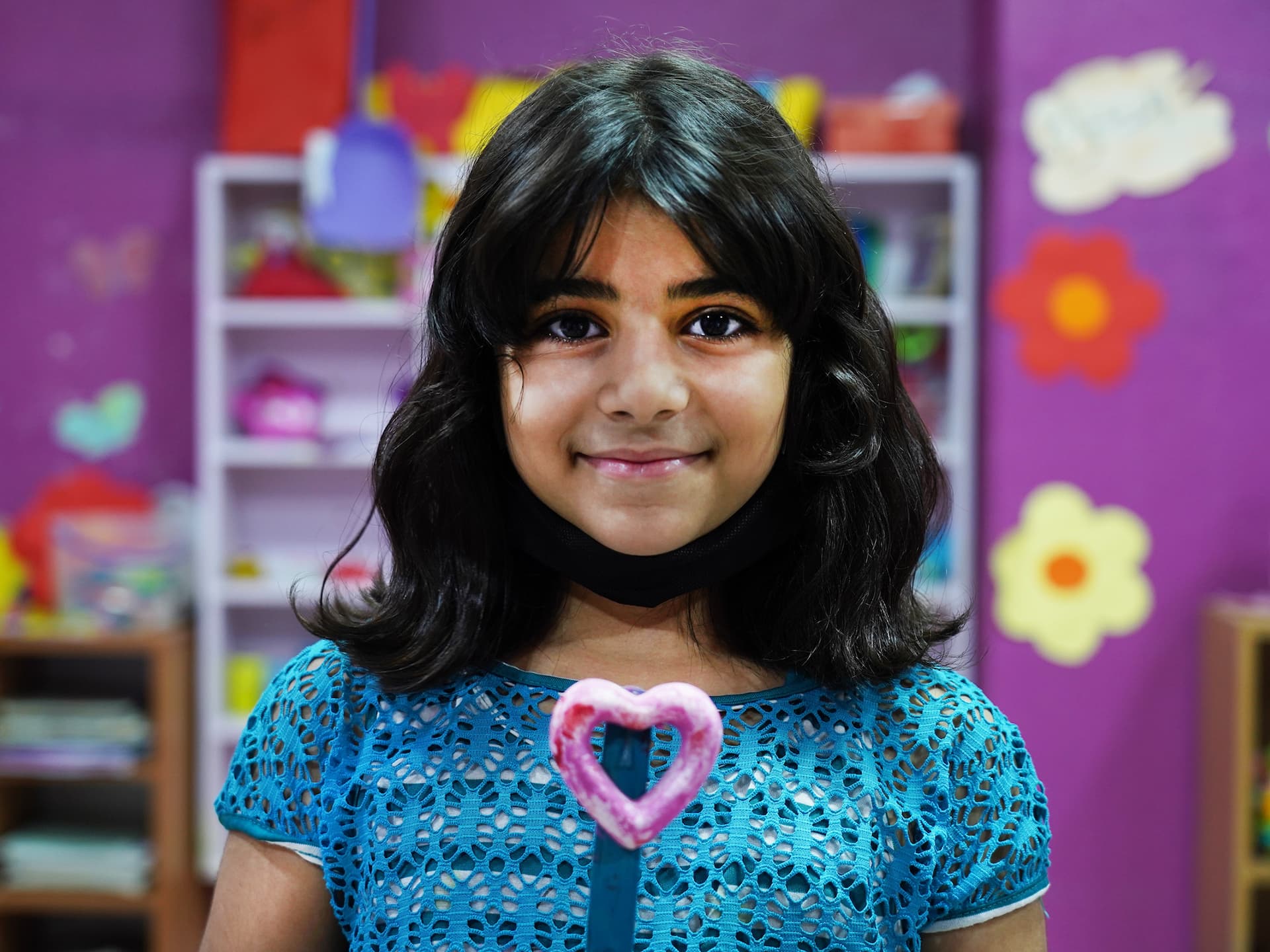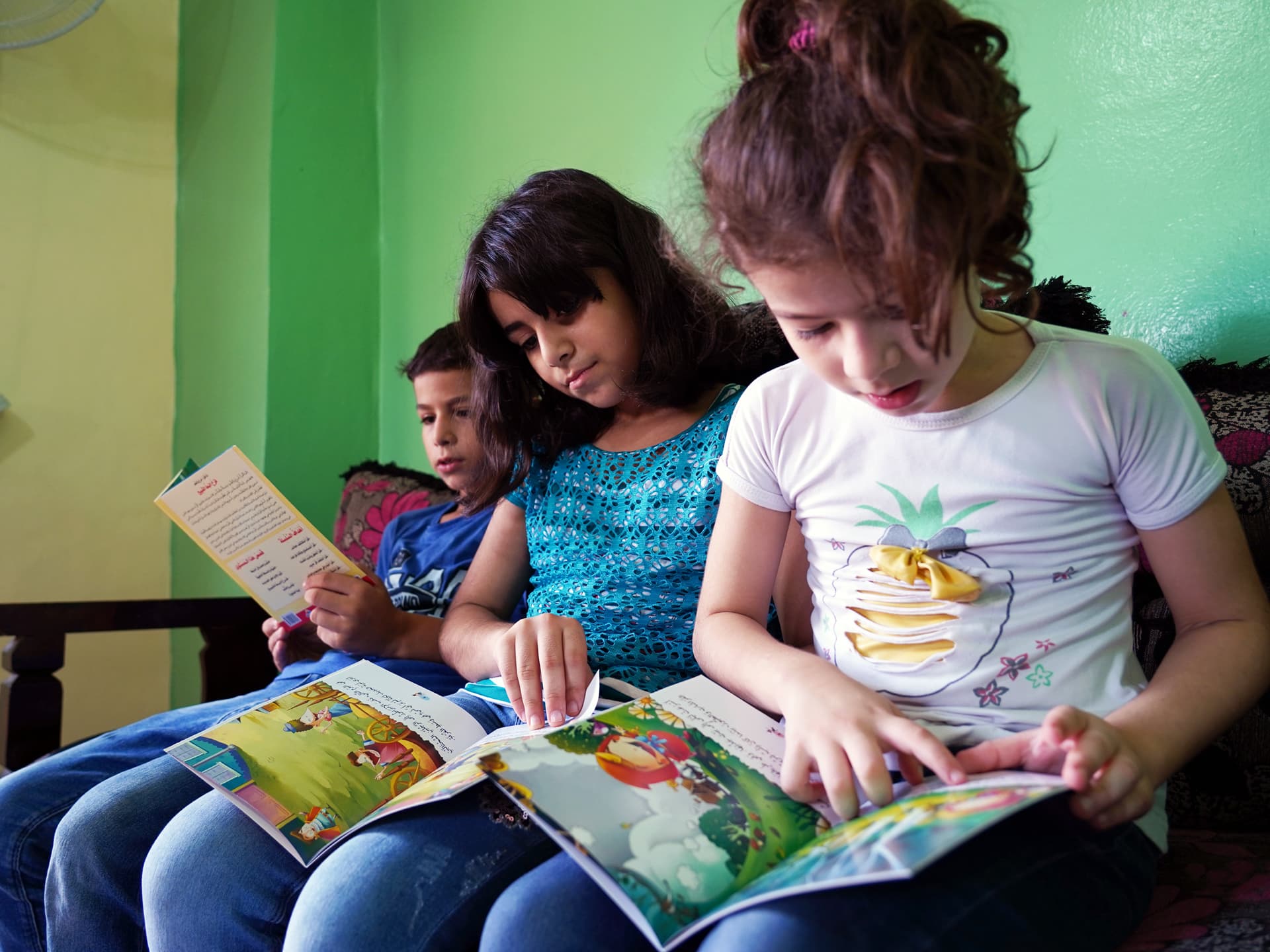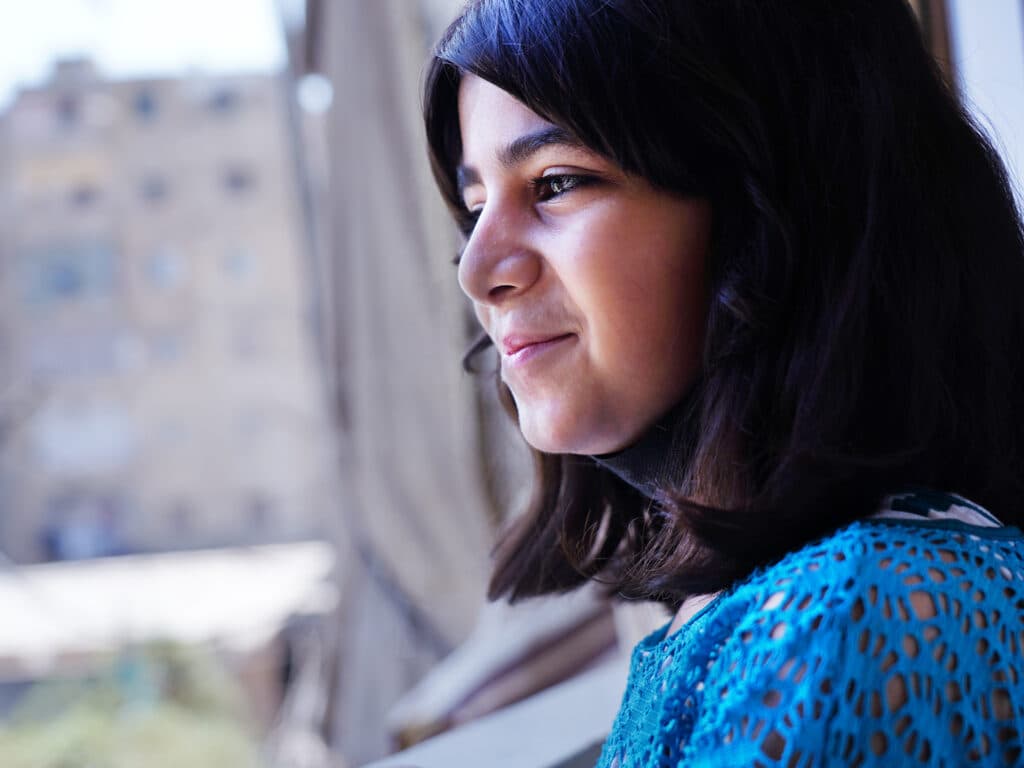
An oasis for children in the heart of the refugee camp
The refugee camp outside Beirut in Lebanon is a challenging place, where more than 17,000 people live on an area built for 5,000. Nonetheless, there are bright spots, such as the place created by our partner organization Najdeh, where children get the chance to be children.
“I am entitled to have a name, a nationality, to express myself, to have a house, to have a family, to not be exploited, to have a large space to play in” – eight-year-old Hasnaa rattles off her rights quickly and exuberantly when we meet her.
So much so, that she nearly stumbles over the words. Hanaa was born here in the refugee camp. This camp should not be a place for children. But children live here. Everywhere. In small damp apartments with broken concrete walls, where the families virtually sleep on top of each other. It is cramped and dirty. Electric cables hang dangerously criss-cross between dripping water pipes.

On their first visit here, most of the children are hyperactive and stressed and they act out due to trauma from war and violence. But with the help of dance, play and other therapeutic methods, the children receive support to express themselves and deal with their experiences and everyday life – both individually and in activities with their parents.
The boy started to open up
“I remember a ten-year-old boy. He never had a smile on his lips; it was as if it had vanished. He showed no expressions at all. I used the storytelling technique and discovered that he had a fantastic lively imagination. He then got the chance to make a book of his fantasies in the therapy sessions,” Ola explains.
And after the sessions the boy started to open up and told both his mother and the psychologist how he was feeling. Before therapy, he was finding school difficult, but after spending some time at Najdeh that also improved.
The benefits of a tranquil place
Hanaa is one of the 90 children who come to the centre every day and take part in its activities. Like many others, she was born in the camp.
“I don’t like Shatila at all, as I’m terrified of those who suddenly start shooting. I freeze on the spot, and am really really scared. A month ago I was playing with my friend in one of the alleyways and heard pistol shots. Two people died. I saw blood coming out of the heart of one of them and out of the neck of the other. And I hate the rubbish that’s thrown away. It stinks and is gross.”
Her mother says that before Hanaa started going to the Najdeh centre she was reserved and shy, but now she is sociable and forward.“At the centre we do everything together, homework and dancing and things. I love being with my friends, I love to draw and I usually draw what I like,” Hasnaa says smiling.

Diakonia in the Middle East and North Africa
Diakonia works in Lebanon, the occupied Palestinian territory (oPt), Egypt and Israel. We also have a regional programme for children’s literature and one for rehabilitation.